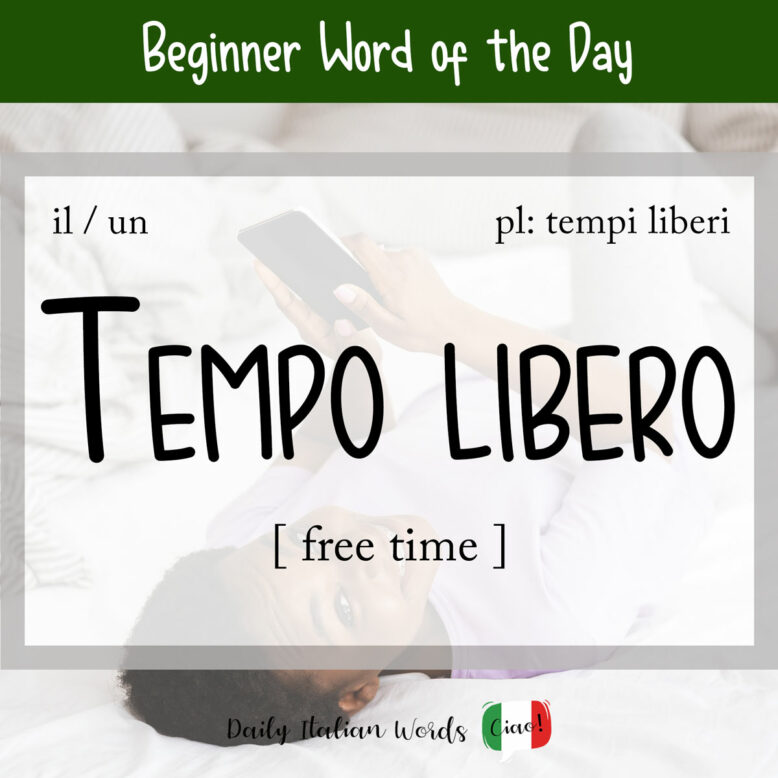The opposite of work is free time, which translates quite literally as tempo libero in Italian. Tempo means time and libero means free. The adjective libero ends with an “o” because tempo is a masculine noun.

Some examples of hobbies people enjoy in their tempo libero include:
- cucinare (cooking)
- giardinaggio (gardening)
- fotografia (photography)
- praticare uno sport (doing a sport)
- fare del volontariato (volunteer)
- riposare (resting)
- leggere (reading)
- meditare (meditating)
- seguire un corso (taking a course)
- scrivere (writing)
Passo il tempo libero a suonare il pianoforte.
I spend my free time playing the piano.

Another way of saying free time or spare time with which you may not be familiar is ritagli di tempo (lit: clippings of time).
Leggo solo nei ritagli di tempo, di solito alla sera dopo che i bambini sono andati a dormire.
I only read in my spare time, usually in the evening after the kids have gone to sleep.
When used in its singular form ritaglio di tempo, it is closer in meaning to spare moment.
Oggi ho trovato un ritaglio di tempo per scriverti.
Today I had a spare moment to write to you.
When talking about short moments of free time, there are various words you can use, just like in English. Here are a few examples:
- Non ho un momento libero oggi. = I don’t have a spare moment today.
- Se hai un attimo (di tempo), te lo vado a prendere. = If you have a moment, I’ll go fetch it for you.
- Hai un minuto? = Do you have a minute?
Italians also use the verb ritagliare to say that they’ll dedicate some spare time to someone or something. Literally, it means to cut out, so ritagliare del tempo means to cut out some time.
Vedo se riesco a ritagliarmi un’oretta, così andiamo a mangiare qualcosa.
I’ll see if I can find an hour to spare, so that we can go eat something together.

Another alternative expression is momenti di svago (lit: moments of leisure) which can translate as either leisure time or free time.
Heather Broster is a graduate with honours in linguistics from the University of Western Ontario. She is an aspiring polyglot, proficient in English and Italian, as well as Japanese, Welsh, and French to varying degrees of fluency. Originally from Toronto, Heather has resided in various countries, notably Italy for a period of six years. Her primary focus lies in the fields of language acquisition, education, and bilingual instruction.


